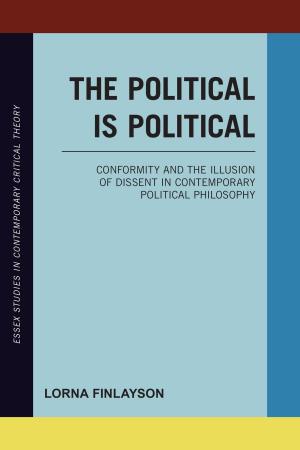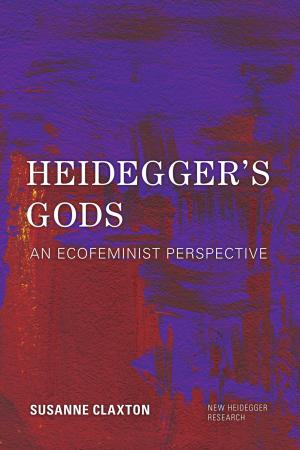Making Sense of Heidegger
A Paradigm Shift
Nonfiction, Religion & Spirituality, Philosophy, Phenomenology, Existentialism| Author: | Thomas Sheehan | ISBN: | 9781783481200 |
| Publisher: | Rowman & Littlefield International | Publication: | November 6, 2014 |
| Imprint: | Rowman & Littlefield International | Language: | English |
| Author: | Thomas Sheehan |
| ISBN: | 9781783481200 |
| Publisher: | Rowman & Littlefield International |
| Publication: | November 6, 2014 |
| Imprint: | Rowman & Littlefield International |
| Language: | English |
Making Sense of Heidegger presents a radically new reading of Heidegger’s notoriously difficult oeuvre*.* Clearly written and rigorously grounded in the whole of Heidegger’s writings, Thomas Sheehan’s latest book argues for the strict unity of Heidegger’s thought on the basis of three theses: that his work was phenomenological from beginning to the end; that “being” refers to the meaningful presence of things in the world of human concerns; and that what makes such intelligibility possible is the existential structure of human being as the thrown-open or appropriated “clearing.”
Sheehan offers a compelling alternative to the classical paradigm that has dominated Heidegger research over the last half-century, as well as a valuable retranslation of the key terms in Heidegger's lexicon. This important book opens a new path in Heidegger research that will stimulate dialogue not only within Heidegger studies but also with philosophers outside the phenomenological tradition and scholars in theology, literary criticism, and existential psychiatry.
Making Sense of Heidegger presents a radically new reading of Heidegger’s notoriously difficult oeuvre*.* Clearly written and rigorously grounded in the whole of Heidegger’s writings, Thomas Sheehan’s latest book argues for the strict unity of Heidegger’s thought on the basis of three theses: that his work was phenomenological from beginning to the end; that “being” refers to the meaningful presence of things in the world of human concerns; and that what makes such intelligibility possible is the existential structure of human being as the thrown-open or appropriated “clearing.”
Sheehan offers a compelling alternative to the classical paradigm that has dominated Heidegger research over the last half-century, as well as a valuable retranslation of the key terms in Heidegger's lexicon. This important book opens a new path in Heidegger research that will stimulate dialogue not only within Heidegger studies but also with philosophers outside the phenomenological tradition and scholars in theology, literary criticism, and existential psychiatry.















